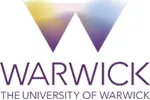We're moving! This site will be relocating to goingto.university in 2026. Please update your bookmarks to the new address.


| The award | How you will study | Study duration | Course start | Domestic course fees | International course fees |
|---|---|---|---|---|---|
| MA | Full-time | 1 year | - | - | - |
| MA | Part-time | 2 years | - | - | - |
Digital processes are transforming culture, the economy and society. This course explores the origins and impact of these changes. It gives you the training to understand and make use of digital media critically, creatively and productively.
If you’re pursuing a professional career in knowledge-based industries, whether in museums, marketing agencies, businesses, charities, new-media production companies, public relations or think-tanks, this course is for you. It will equally qualify you with the academic skills for further doctoral study.
You’ll develop a critical and practice-based understanding of the impact of links, queries, downloads and uploads, file formats, archives, databases and networks more generally. Core modules introduce you to the conceptual and methodological dimensions of the digital realm. You then select two or three option modules in areas that cover the theoretical and socioeconomic aspects of digital culture, urban science, big data and complexity. A dissertation allows you to explore your own questions and interests in more depth.
Core modules:
Masters Optional Modules:
Visualisation; Social Informatics; Big Data Research: Hype or Revolution?; Complexity in the Social Sciences; Media and Social Theory; Digital Sociology; Post Digital Books; User Interface Cultures: Design, Method and Critique; Playful Media: Ludification in the Digital Age.
Optional modules from other departments may be considered as part of your degree programme. Should you wish to undertake an outside option, you will need to discuss this with the Masters Convenor.
Please note: not all optional modules may be available each year; you should therefore check with the Centre. New modules or modules named may be amended or advertised for the next academic year.
Assessment: A combination of essays, reports, design projects, technical report writing, practice assessments, group work and presentations and an individual research project.
Course Laptops: All students on CIM degrees are given a laptop to use.
Who should apply?This course is aimed at students from a range of disciplinary backgrounds who want to learn more about the emerging field of digital culture and media. Although no specific background is required, your application must demonstrate an ability to work creatively and independently as well as an interest in contemporary developments in computing, media and culture, and digital data in general. For further information, contact the Course Convenor and the Director of Postgraduate Taught Courses, Dr. Michael Dieter: [email protected].
MA
Full time:
Home/EU: £8,970 per year
Overseas: £19,180 per year
Part time:
Home/EU: £4,885* per year
Overseas: £9,990* per year
* students pay £775 in 16/17 and £800 in 17/18 for laptop in Year 1 only
Find out more about Fees and Funding
Department website
Centre for Interdisciplinary Methodologies
Application
Applying to Warwick
Contact University of Warwick to find course entry requirements.
Below are some suggested courses at other providers that you may also be interested in:
Advanced Sound Design – Short Course Summer School
Catalyst - Institute for Creative Arts and Technology
Find out moreMultimedia & Creative Technologies Professional Bachelor Degree
KdG University of Applied Sciences and Arts
Find out moreIf you do not meet the entry requirements for this course then consider one of these postgraduate preparation courses from another institution:
Graduate Diploma of Engineering (Electrical Systems)
Engineering Institute of Technology
Find out moreGraduate Diploma in Strategic Management Level 7
New Zealand Management Academies (NZMA)
Find out moreThere are 337 other courses listed from University of Warwick. A selection of these are displayed below:
Advanced Clinical Practice for Health Care Professionals (PGCert) PG Cert
University of Warwick
Find out moreJoin the StudyLink email list and never miss a chance to turn your study abroad dreams into reality!
